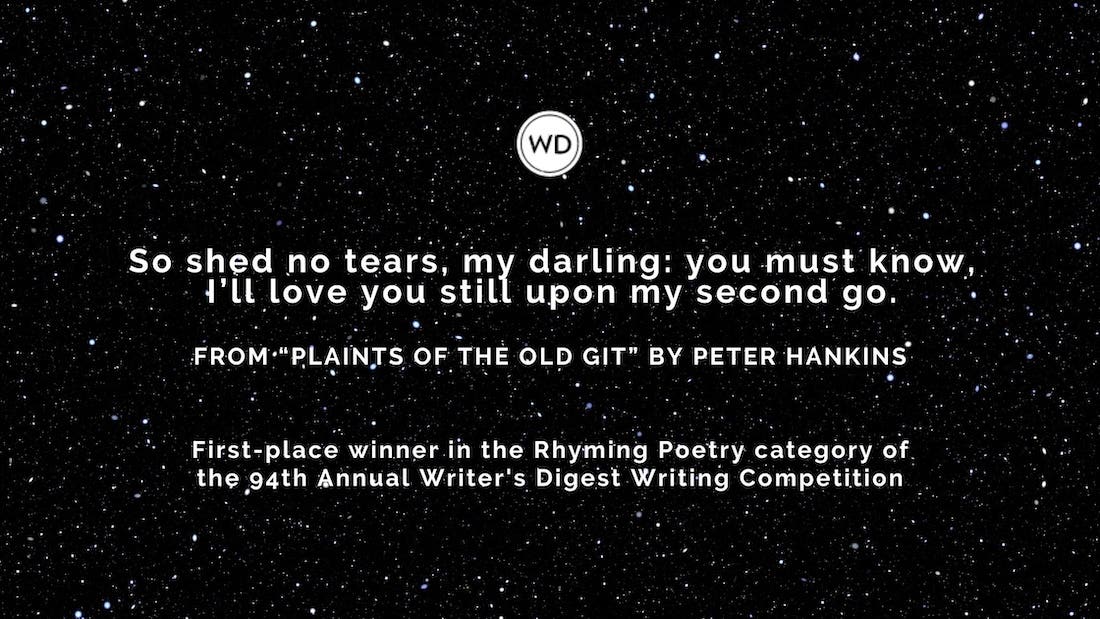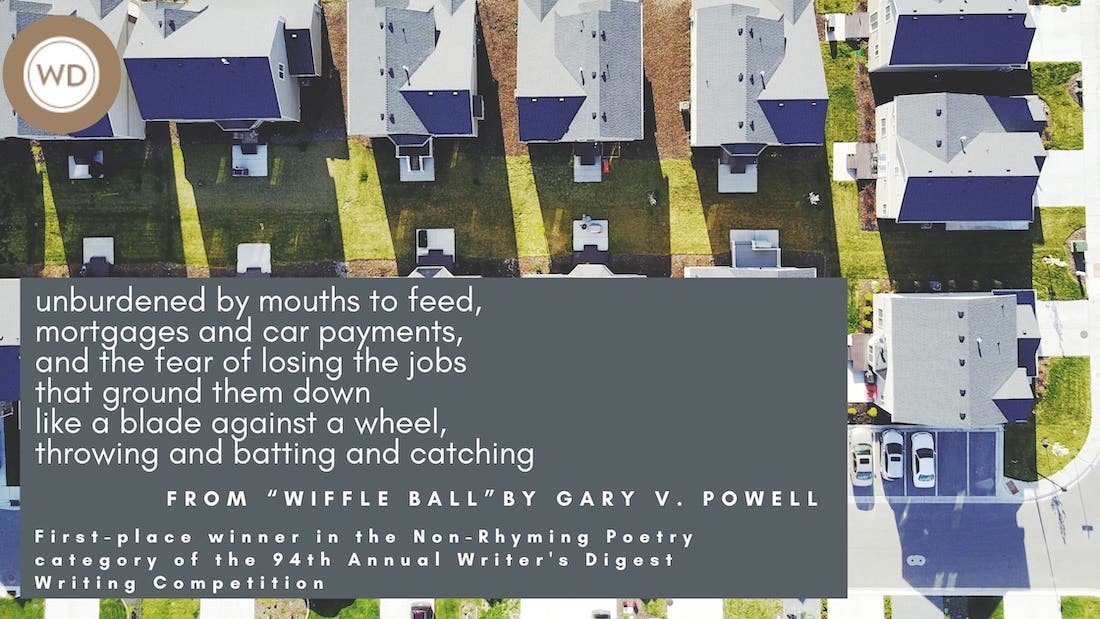Meet Alexandra Hill, Grand Prize Winner of the 15th Annual WD Popular Fiction Awards
Congratulations to Alexandra Hill, grand prize winner of the 15th Annual Writer’s Digest Popular Fiction Awards! Here’s a look at her writing process.
Congratulations to Alexandra Hill, grand prize winner of the 15th Annual Writer's Digest Popular Fiction Awards! Here's a look at her writing process.
Looking for writing inspiration, Alexandra Hill found a prompt on NYC Midnight that gave a genre, location, and theme for a short story: horror, library, and loyalty. The prompt resulted in “A Life Measured in Moons,” which won Grand Prize in the 15th Annual Writer’s Digest Popular Fiction Awards.
The dark fantasy explores a choice a young woman makes to protect her younger brother, the consequences she must live with, and how these choices influence the world around her.
“While [loyalty] was something I had trouble defining, I wanted it to feature siblings because romantic love and parent/child love felt too obvious,” Hill says. “I’m an only child and siblings have always been interesting to me, so I wanted to look at what loyalty could do to someone who loved their sibling a lot and just wanted to protect them.”
Hill’s winnings include $2,500 and a trip to the Writer’s Digest Annual Conference in New York City.
While she is currently writing a novella and gearing up to write a novel, Hill likes exploring short stories because they are easier to draft in a day, focus the scope, and come back to edit after the long hours she works as a consultant. Entering 48-hour flash fiction competitions with NYC Midnight has helped her make the most of the writing time she gets.
Hill has loved writing since she was a child, but dedicated herself more to writing while earning her Ph.D. in computational biology. While she says grad school can feel soul-crushing, the cycles of failure, critique, and success made her stop worrying about what people thought of her and whether she was writing the right things. Instead, she just wrote what she wanted and writing got easier for her.
During her time in grad school, Hill wrote a “bad mystery novel that will never see the light of day” and a fantasy novel she hopes to develop during the MFA programs she is applying to. Although she reads a variety of genres, her favorite genre to read and write is speculative fiction.
To keep short stories focused, Hill says that “being ruthless in cutting is important.” The first thing she looks to cut down in short story drafts is the number of characters, because she tends to introduce too many. “You can’t introduce 16 characters [in a short story] and hope that any of them seem real. Distilling down a short story to one essential question and a few essential characters that will help answer that [question] is going to make the best and most effective story.”
After eliminating characters that aren’t essential, Hill distills events that drive the plot. “Sometimes you meander and there isn’t room for that side story to make characters feel whole,” she says. She tries to either condense events to make two things happen at the same time to show what she wants about the characters, or eliminate elements that develop characters but aren’t essential to the story.
For example, when revising “A Life Measured in Moons,” she asked herself: “Would it really matter that Margaret likes eating muffins first thing in the morning? It would humanize her, but there’s other ways I could do that.”
This cutting phase of her writing process helps Hill figure out the essence of her story. “There’s so many different things that could end up on the cutting room floor to help you make something as effective as it can be.”








